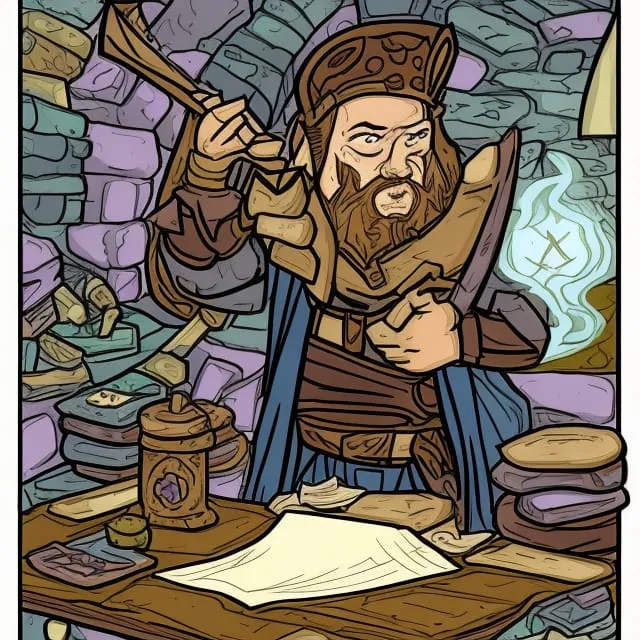Continuing from last time, here’s some ideas I had for tabletop games based around The Dark Knight.
Plot Obstacle: Already on the run
One of the frustrating plot points for characters, especially in their early levels is often “why isn’t the army dealing with the goblins? why us?” and “why can’t I just go to the town guard to deal with this?”
This obstacle takes those options right off the table.
Maybe their goal is technically on the wrong side of the law. Maybe they’ve been framed for something they need to clear up. Or maybe the town guard are all corrupt and working for the bad guys.
Whatever the reason, the adventurers have to contend with the establishment coming after them whilst they try to get on with the story. Town guard are hostile on sight. Bakers will subtly try to alert them whilst the character’s are picking out their rations. Tavern keepers charge them double for the night for the risk they’re taking.
Downtime activity: Foil crimes
The vast majority of adventurers I’ve interacted with have lacked families or day jobs and so many of the potential downtime activities don’t apply to them. But they do tend to towards good and like to take matters into their own hands.
This may not even fall under “vigilantism”; many towns have a bounty board and often adventurers are asked to deal with various problems around town, like kicking out the Redbrands.
Resources required. It starts with a simple petty theif that you’re tracking down, but that quickly spins into a whole network of bad actors, pulling threads in all directions, and you stumble upon a much larger plot. It takes a full workweek to conclude your investigation, infiltration, and dissolution of the network. This work costs you 25gp in bribes and equipment.
Resolution. There are a number of checks to be made to determine the outcome of your week.
How did your initial investigation go? Your investigation certainly lead you to the crime you’re hoping to foil, but how much of an advantage did it give you? Make a DC 15 Charisma- or Intelligence-based check of your choice. On success, you have advantage on the next check.
How did you track down their hideout? You’ve found their hideout, but did you draw a lot of attention to yourself whilst you did it? Do you have any time to come up with a good plan, and set the stage to your advantage? Make a DC 15 Wisdom- or Dexterity-based check of your choice. On success, you have advantage on the next check.
How did apprehending them go? No guarentees here. They may still get away unhindered. They’re slippery like that. Make a DC 15 Strength-, Dexterity-, or Constitution-based check of your choice. On a success, you managed to stop the crime! The bad guys are thrown in irons and locked away. On failure, the crime networks lives on. Maybe there’s a puppetmaster who eluded you. Maybe they were able to flee the scene and vanish into the shadows. Either way, the thread is hanging, and you’ve made yourself known to this underground organisation.
If you succeeded in foiling the crime, a bounty or jesture of good will is paid to you to the value of 100gp.
If you succeeded in any Charisma based checks, you now have a new contact to call on in times of need who will (most likely) help out.
If you succeeded in any Intelligence based checks, you also learn something new about the world that your adventuring group did not already know. This may help your main adventure.
If you succeeded in any Wisdom based checks, you manage to turn the crime to your advantage somehow. This may come in the form of an additional 2d20 gold pieces (or items to that value).
If you succeeded in any Dexterity based checks, you come across the gang’s gold stash whilst sticking to the shadows. Gain 2d20 gold pieces (or items to that value).
If you succeeded in any Strength based checks, news of your heroism has spread. Choose a feature (or one similar to): Faceless Persona (BG), Rustic Hospitality, Bad Reputation. This feature is limited to your current town.
If you succeeded in any Constitution based checks, what didn’t kill you, made your stronger. The blows you took only increased your stamina and confidence. For the next seven days, a long rest also grants you 1d4 temporary hitpoints per your level.
Complications. These are almost unavoidable in this line of work. Likely, someone knows it was you that meddled with their dastardly plans. Your name is almost definitely on someone’s hit list now.
Skill: Grit
One of the reasons there aren’t any Constitution based checks on the default list is because almost always it’s Con is needed when something is being done to you which makes it a Con save, rather than a skill. I’d argue that there are some times when a Constitution based skill would be useful though.
Con and hit points are linked very closely. We also know that hit points aren’t just how healthy you are. You can be psychically beaten down, without taking a lick of pain, or have your Con dropped when you’re exhausted. Someone on 0 HP makes Con saves not only to see if their body can take it, but to see if they have the sheer will to bring themselves back to 1 HP.
Enter, Grit (Con). This can be used in situations where you want to steel yourself for an upcoming blow of some kind. Briefly overcoming your exhaustion and the pain in your battered body to do something heroic. On a successful grit check, you may temporarily overcome a disadvantage or snap out of your fearful stupor. Or just use it for cool roleplay things, and make decisions on how brave your character is.




